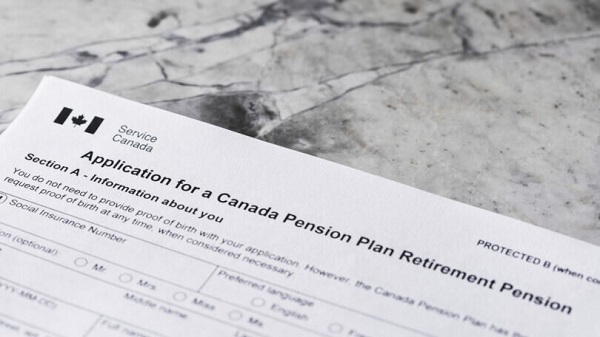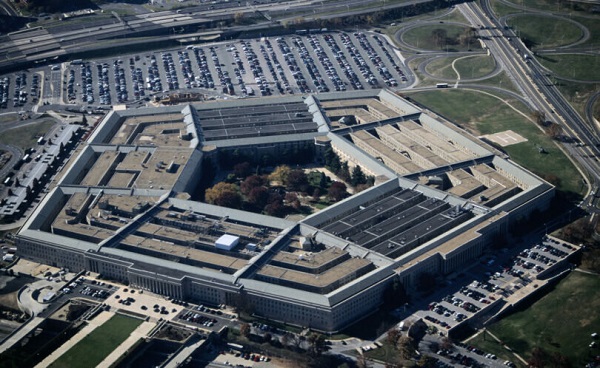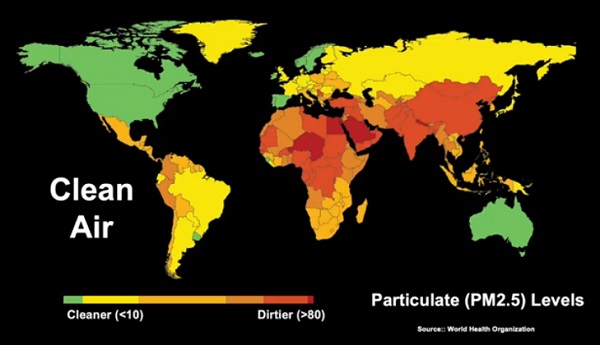Banks
TD Bank Account Closures Expose Chinese Hybrid Warfare Threat

From the Frontier Centre for Public Policy
Scott McGregor warns that Chinese hybrid warfare is no longer hypothetical—it’s unfolding in Canada now. TD Bank’s closure of CCP-linked accounts highlights the rising infiltration of financial interests. From cyberattacks to guanxi-driven influence, Canada’s institutions face a systemic threat. As banks sound the alarm, Ottawa dithers. McGregor calls for urgent, whole-of-society action before foreign interference further erodes our sovereignty.
Chinese hybrid warfare isn’t coming. It’s here. And Canada’s response has been dangerously complacent
The recent revelation by The Globe and Mail that TD Bank has closed accounts linked to pro-China groups—including those associated with former Liberal MP Han Dong—should not be dismissed as routine risk management. Rather, it is a visible sign of a much deeper and more insidious campaign: a hybrid war being waged by the Chinese Communist Party (CCP) across Canada’s political, economic and digital spheres.
TD Bank’s move—reportedly driven by “reputational risk” and concerns over foreign interference—marks a rare, public signal from the private sector. Politically exposed persons (PEPs), a term used in banking and intelligence circles to denote individuals vulnerable to corruption or manipulation, were reportedly among those flagged. When a leading Canadian bank takes action while the government remains hesitant, it suggests the threat is no longer theoretical. It is here.
Hybrid warfare refers to the use of non-military tools—such as cyberattacks, financial manipulation, political influence and disinformation—to erode a nation’s sovereignty and resilience from within. In The Mosaic Effect: How the Chinese Communist Party Started a Hybrid War in America’s Backyard, co-authored with Ina Mitchell, we detailed how the CCP has developed a complex and opaque architecture of influence within Canadian institutions. What we’re seeing now is the slow unravelling of that system, one bank record at a time.
Financial manipulation is a key component of this strategy. CCP-linked actors often use opaque payment systems—such as WeChat Pay, UnionPay or cryptocurrency—to move money outside traditional compliance structures. These platforms facilitate the unchecked flow of funds into Canadian sectors like real estate, academia and infrastructure, many of which are tied to national security and economic competitiveness.
Layered into this is China’s corporate-social credit system. While framed as a financial scoring tool, it also functions as a mechanism of political control, compelling Chinese firms and individuals—even abroad—to align with party objectives. In this context, there is no such thing as a genuinely independent Chinese company.
Complementing these structural tools is guanxi—a Chinese system of interpersonal networks and mutual obligations. Though rooted in trust, guanxi can be repurposed to quietly influence decision-makers, bypass oversight and secure insider deals. In the wrong hands, it becomes an informal channel of foreign control.
Meanwhile, Canada continues to face escalating cyberattacks linked to the Chinese state. These operations have targeted government agencies and private firms, stealing sensitive data, compromising infrastructure and undermining public confidence. These are not isolated intrusions—they are part of a broader effort to weaken Canada’s digital, economic and democratic institutions.
The TD Bank decision should be seen as a bellwether. Financial institutions are increasingly on the front lines of this undeclared conflict. Their actions raise an urgent question: if private-sector actors recognize the risk, why hasn’t the federal government acted more decisively?
The issue of Chinese interference has made headlines in recent years, from allegations of election meddling to intimidation of diaspora communities. TD’s decision adds a new financial layer to this growing concern.
Canada cannot afford to respond with fragmented, reactive policies. What’s needed is a whole-of-society response: new legislation to address foreign interference, strengthened compliance frameworks in finance and technology, and a clear-eyed recognition that hybrid warfare is already being waged on Canadian soil.
The CCP’s strategy is long-term, multidimensional and calculated. It blends political leverage, economic subversion, transnational organized crime and cyber operations. Canada must respond with equal sophistication, coordination and resolve.
The mosaic of influence isn’t forming. It’s already here. Recognizing the full picture is no longer optional. Canadians must demand transparency, accountability and action before more of our institutions fall under foreign control.
Scott McGregor is a defence and intelligence veteran, co-author of The Mosaic Effect: How the Chinese Communist Party Started a Hybrid War in America’s Backyard, and the managing partner of Close Hold Intelligence Consulting Ltd. He is a senior security adviser to the Council on Countering Hybrid Warfare and a former intelligence adviser to the RCMP and the B.C. Attorney General. He writes for the Frontier Centre for Public Policy.
Banks
Liberal border bill could usher in cashless economy by outlawing cash payments

From LifeSiteNews
Bill C-2 has raised concerns from legal organizations that warn it could lead to a cashless economy in Canada by banning cash payments over $10,000.
The Liberals’ proposed border legislation may quietly usher in a cashless economy by banning cash payments.
On June 3, the Liberal Party introduced Bill C-2 to strengthen border security and outlaw cash payments over $10,000. Legal organizations have since warned that this is the first step to a cashless economy and digital ID system in Canada.
“Part 11 amends the Proceeds of Crime (Money Laundering) and Terrorist Financing Act to prohibit certain entities from accepting cash deposits from third parties and certain persons or entities from accepting cash payments, donations or deposits of $10,000 or more,” the legislation proposes.
While the bill purports to strengthen border security and restore Canada-U.S. relations, many have warned that government regulation of cash payments is a slippery slope.
In a June 4 X post, the Justice Centre for Constitutional Freedoms (JCCF) warned that “If Bill C-2 passes, it will become a Criminal Code offence for businesses, professionals, and charities to accept cash donations, deposits, or payments of $10,000 or more. Even if the $10,000 payment or donation is broken down into several smaller cash transactions, it will still be a crime for a business or charity to receive it.”
The JCCF pointed out that while cash payments of $10,000 are not common for Canadians, the government can easily reduce “the legal amount to $5,000, then $1,000, then $100, and eventually nothing.”
“Restricting the use of cash is a dangerous step towards tyranny and totalitarianism,” the organization warned. “Cash gives citizens privacy, autonomy, and freedom from surveillance by government and by banks, credit card companies, and other corporations.”
“If we cherish our privacy, we need to defend our freedom to choose cash, in the amount of our choosing,” it continued. “This includes, for example, our right to pay $10,000 cash for a car, or to donate $10,000 (or more) to a charity.”
“Law enforcement already has the tools to fight crime,” JCCF declared. “Perhaps they need a bigger budget to hire more people, or perhaps they need to use existing tools more effectively. In a free society, violating our right to use cash is not the answer.”
A move to restrict Canadians’ use of cash is especially concerning as citizens already saw what a Liberal government will do to those who oppose its narrative during the 2022 Freedom Convoy.
In winter 2022, the Liberal government, under former Prime Minister Justin Trudeau, froze the bank accounts of those who donated to the Freedom Convoy, which featured thousands of Canadians camping in front of Parliament to protest COVID mandates.
Similarly, Liberal Prime Minister Mark Carney’s move to restrict Canadians is hardly surprising considering his close ties to the World Economic Forum and push for digital currency.
In a 2021 article, the National Post noted that “since the advent of the COVID pandemic, Carney has been front and centre in the promotion of a political agenda known as the ‘Great Reset,’ or the ‘Green New Deal,’ or ‘Building Back Better.’
“Carney’s Brave New World will be one of severely constrained choice, less flying, less meat, more inconvenience and more poverty,” the outlet continued.
In light of Carney’s new leadership over Canadians, many are sounding alarm over his distinctly anti-freedom ideas.
Exposing Mark Carney:
“Should sex be up for sale” 😮
“Should there be a market for the right to have children?” 🤯 pic.twitter.com/Q4hftgGIMc
— Mario Zelaya (@mario4thenorth) March 21, 2025
Carney, whose ties to globalist groups have had Conservative Party leader Pierre Poilievre call him the World Economic Forum’s “golden boy”. He has also previously endorsed the carbon tax and even criticized Trudeau when the tax was exempted from home heating oil in an effort to reduce costs for some Canadians.
Carney, who as reported by LifeSiteNews, has admitted he is an “elitist” and a “globalist.” Just recently, he criticized U.S. President Donald Trump for targeting woke ideology and has vowed to promote “inclusiveness” in Canada.
Carney also said that he is willing to use all government powers, including “emergency powers,” to enforce his energy plan.
Banks
Canada Pension Plan becomes latest institution to drop carbon ‘net zero’ target

From LifeSiteNews
Changes to the law require companies to more rigorously prove their environmental claims.
The investment group in charge of Canada’s governmental pension plan has ditched its “net zero” mandate, joining a growing list of major institutions doing the same.
According to the Canada Pension Plan (CPP) Investments’ latest annual report, the entity is no longer committed to carbon “net-zero” by 2050. The CPP’s ditching of the target comes after a number of major institutions, including the Royal Bank of Canada (RBC), Toronto-Dominion Bank (TD), Bank of Montreal (BMO), National Bank of Canada, and the Canadian Imperial Bank of Commerce (CIBC), all made similar moves in recent months.
While ditching the net-zero effort, chief executive of CPP Investments John Graham maintained that it is still “really important to incorporate climate and incorporate sustainability” in its long-term investment portfolio.
The dropping of the “climate” target comes as recent changes to Canada’s Competition Act now mandate that companies prove any environmental claims they make, with Graham insinuating these changes were a factor in the decision.
“Recent legal developments in Canada have introduced, kind of, new considerations around how net-zero commitments are interpreted, so that’s caused us to change a little bit how we talk about it, but nothing’s changed on what we’re actually doing.”
Over the past decade, left-wing activists have used “net zero” and “environmental, social & governance” (ESG) standards to encourage major Canadian and U.S. corporations to take particular stands on political and cultural issues, notably in promotion of homosexuality, transgenderism, race relations, the environment, and abortion.
Outside of Canada, many major corporations have announced they are walking back DEI and other related policies. Some of the most notable include Lowe’s, Jack Daniel’s, and Harley Davidson. Other companies such as Disney, Target, and Bud Light have faced negative sales due to consumers fighting back and refusing to patronize the businesses.
Since taking power in 2015, the Liberal government, first under Justin Trudeau and now under Mark Carney, has continued to push a radical environmental agenda in line with those promoted by the World Economic Forum’s “Great Reset” and the United Nations’ “Sustainable Development Goals.” Part of this push includes the promotion of so called net-zero energy by as early as 2035.
-

 International1 day ago
International1 day agoIsrael’s Decapitation Strike on Iran Reverberates Across Global Flashpoints
-

 Business1 day ago
Business1 day agoTrump: ‘Changes are coming’ to aggressive immigration policy after business complaints
-

 illegal immigration1 day ago
illegal immigration1 day agoLA protests continue as judge pulls back CA National Guard ahead of ‘No Kings Day’
-

 Business2 days ago
Business2 days agoThe carbon tax’s last stand – and what comes after
-

 National2 days ago
National2 days agoCarney promotes MP instrumental in freezing Freedom Convoy donors’ bank accounts
-

 International2 days ago
International2 days agoPentagon agency to simulate lockdowns, mass vaccinations, public compliance messaging
-

 conflict2 days ago
conflict2 days agoIsrael strikes Iran, targeting nuclear sites; U.S. not involved in attack
-

 Alberta1 day ago
Alberta1 day agoPunishing Alberta Oil Production: The Divisive Effect of Policies For Carney’s “Decarbonized Oil”






